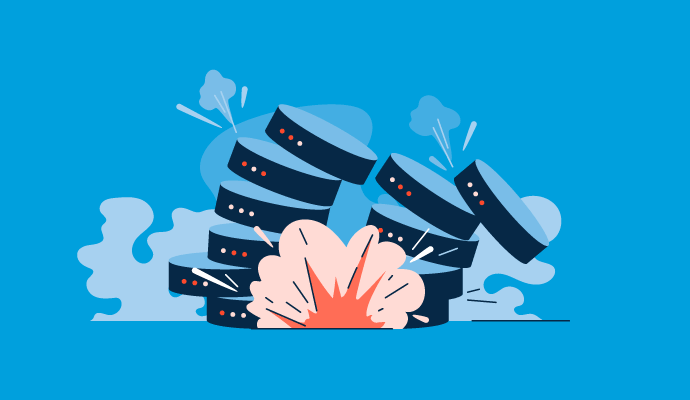Essential Cyber Security Practices for Effective Data Destruction Strategies
Essential Cyber Security Practices for Effective Data Destruction Strategies
Blog Article
Checking Out the Importance of Information Damage in the Context of Computer System Security Solutions and Protecting Confidential Data
In a period where data violations are significantly typical, the importance of effective data damage can not be overemphasized. When no longer essential, Organizations needs to embrace strict steps to ensure that sensitive details is not just protected during its lifecycle yet additionally decisively removed. The methods used for data removal, coupled with conformity to lawful criteria, play a critical function in maintaining discretion and count on. The implications of these techniques prolong past mere compliance, affecting a business's online reputation and operational honesty in the digital industry. What approaches can companies carry out to enhance their data destruction procedures?
Comprehending Data Damage
Information destruction is a crucial component of computer protection that entails the permanent removal of information from storage space gadgets to protect against unapproved access and possible data violations. In an increasingly electronic landscape, companies face heightened threats related to delicate details being incorrectly accessed or exploited. Reliable data damage safeguards against these threats, making sure that confidential dataâEUR" such as client info, intellectual building, and monetary recordsâEUR" can not be recouped after disposal.
Recognizing the relevance of information devastation extends beyond mere conformity with regulative and lawful frameworks; it is important for preserving organizational honesty and count on. When data is poorly taken care of or inadequately ruined, the repercussions can be extreme, consisting of monetary loss, reputational damages, and lawful responsibilities.

Methods of Data Obliteration

One prevalent method is information cleaning, which entails overwriting existing data with random patterns several times. This technique makes the original data irretrievable, making it a prominent option for organizations looking for to shield private information.
Another technique is degaussing, which utilizes an effective electromagnetic field to interrupt the magnetic domains on storage space devices, efficiently erasing the information. This approach is specifically reliable for magnetic media yet is not suitable to solid-state drives.
Physical devastation is another robust method, squashing or entailing the shredding of storage devices. This technique warranties that information recovery is basically impossible, making it excellent for highly delicate information.
Finally, encryption can serve as a complementary strategy to data obliteration. By securing information before removal, organizations can add an extra layer of safety and security, making certain that also if residues are recouped, they continue to be hard to reach without the decryption trick. Each method ought to be selected based on the degree of information level of sensitivity and the certain protection requirements of the company.
Legal Conformity and Information Safety And Security
Organizations must browse a complicated landscape of lawful needs connected to data protection, particularly after implementing approaches of information obliteration. Various laws, such as the General Information Defense Policy (GDPR) and the Medical Insurance Mobility and Responsibility Act (HIPAA), enforce rigid guidelines on just how companies have to dispose and deal with of delicate information. Failure to follow these policies can cause significant legal repercussions, consisting of significant fines and reputational damage.
Data destruction procedures need to be thoroughly recorded to demonstrate conformity with appropriate legislations and standards. This documentation not only functions as evidence of adherence to lawful responsibilities but likewise highlights a dedication to protecting delicate info. Organizations must likewise establish clear plans concerning information retention and damage timelines, ensuring that information is not held longer than necessary.

In addition, regular audits and analyses of information destruction methods are important to maintain conformity and adjust to evolving legal frameworks (data destruction). By proactively dealing with legal demands, organizations can minimize threats connected with data violations and demonstrate their dedication to data security. Ultimately, prioritizing legal compliance in data damage procedures is not just a regulative commitment, however a fundamental aspect of a durable data security strategy
Influence On Company Track Record
The credibility of a service can be substantially influenced by its method to data damage and administration. In today's digital landscape, where information breaches can occur anytime, the failing to appropriately take care of delicate details can lead to serious effects. Organizations that inadequately manage information devastation danger more revealing private consumer info, which not just violates personal privacy regulations but additionally deteriorates trust among stakeholders and clients.
A ruined online reputation can cause reduced consumer commitment, as clients end up being reluctant to engage with a business that has actually shown negligence in safeguarding their data. Adverse promotion bordering an information breach can have an enduring result, as possible customers may be hindered by the perceived lack of safety and security. This can bring about a straight decrease in revenue and market share.
Furthermore, organizations that prioritize information damage as component of their safety approach can enhance their online reputation by showcasing their dedication to guarding delicate details. By taking on stringent data administration practices, companies can not only mitigate risks yet likewise place themselves as trustworthy entities in their corresponding industries, thus strengthening their total brand name image.

Ideal Practices for Secure Disposal
Applying ideal methods for safe disposal of information is vital for minimizing risks connected with data violations and guaranteeing compliance with personal privacy laws. Organizations ought to take on an extensive Website data disposal plan that lays out treatments for both physical and electronic information devastation.
For physical data storage space gadgets, such as disk drives, shredding or degaussing is suggested to avoid data healing. Additionally, organizations should preserve a chain of protection documentation throughout the disposal process, making sure responsibility and traceability of disposed things.
For digital data, using software application that follows industry criteria for data cleaning is important. This software application must overwrite existing information numerous times, making recovery basically difficult. It is also important to validate the efficiency of the information destruction process through audits or third-party assessments.
Training workers on protected disposal practices adds one more layer of security, as human error can usually lead to data direct exposure. Regularly updating and assessing disposal plans makes sure positioning with developing regulations and technical improvements. By executing these best methods, companies can significantly lower the danger of unauthorized data gain access to and boost their total information security method.
Final Thought
To conclude, data damage is a basic facet of computer protection services that makes sure the defense of secret information from unauthorized access. Applying efficient methods of data eradication, sticking to lawful conformity, and recognizing the impact on organization online reputation are important parts of an extensive data protection technique. By embracing ideal techniques for secure disposal, companies can promote depend on with customers and protect sensitive information, eventually contributing to a much more secure digital landscape.
In an age where information breaches are progressively usual, the importance of reliable data destruction can not be overstated.Information devastation is a crucial element of computer system safety that involves the long-term removal of information from storage space devices to stop unauthorized access and prospective data breaches. Organizations ought to likewise develop clear policies concerning information retention and destruction timelines, ensuring that information is not held longer than required.
By proactively attending to legal requirements, companies can reduce threats associated with data violations and demonstrate their dedication to information safety and security (data destruction). Ultimately, prioritizing legal conformity in Click This Link information damage procedures is not just a regulatory responsibility, but a fundamental facet of a durable data safety and security technique
Report this page